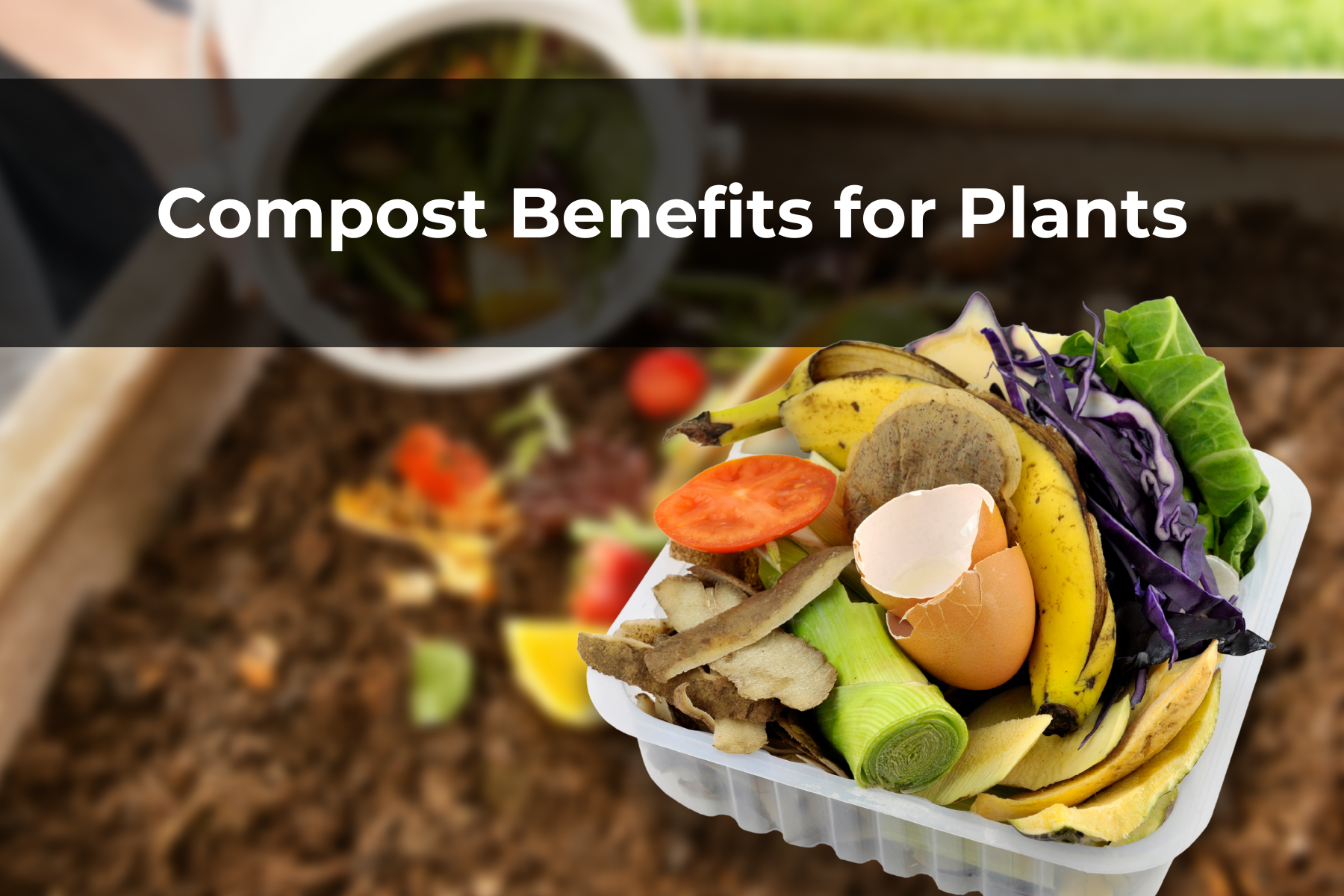Last Updated on April 16, 2024 by Real Men Sow
Compost is the best thing to add to improve the growing conditions of your plants and more. If you ever need a list of some of the compost benefits for plants, here it is:
Effects on Soil
- It improves soil tilth (the physical state of the soil)
- It improves soil structure and porosity, creating a better environment for plant roots
- Improves soil fertility
- Light soils have a higher moisture-holding capacity
- Organic matter available
- Aids and supplies for the proliferation of microorganisms
- Destroys or suppresses many soil pathogens
Every gardener knows compost is the first solution for almost every problem in the garden. Compost helps treat nutrient-deficit problems as well as protect plants from disease. This is because compost improves soil structure by adding nutrients and balancing pH levels. It also allows for better moisture retention and infiltration.
The beneficial microbes in compost fertilizer aerates the soil. These microbes are essential for plants to be able to access the nutrients they require.
Compost Benefits for Plants: Controls Erosions (Reduces erosion and runoff)
Compost’s water retention capabilities are a big help to gardening/farming. Since excessive water is the main cause of erosion. Water is unable to penetrate the ground and swells on the surface, rushing down to lower elevations. This takes the topsoil with it, reducing the land’s fertility. The topsoil is kept where it belongs, on top, by compost which acts as a sponge that allows water to penetrate the ground more easily.
Compost Benefits for Plants: Helps Revitalize and Filter Local Water Sources
- Increase in permeability and moisture infiltration
- Filters surface water contaminants.
Compost can hold between 5-20 times its weight in water so adding compost to the soil will increase the amount of water that can penetrate the soil. It also means that water can seep down to impervious rock layers, where it swells up, replenishing local springs, lakes, and ponds.
The soil, rock, and compost layers that water goes through filter it before it reaches these water sources. These local water sources should account for 40% of all rainfall. Therefore, compost can play an important role in encouraging rainfall use in an area.
Compost Benefits for Plants: Produces Healthier Food
- Encourages vigorous root growth
- Allows plants to use nutrients more efficiently
- It reduces the loss of nutrients through leaching and allows soils to retain more nutrients.
Soil has a lot of nutritional loss across the country due to erosion and the widespread use of pesticides and chemical fertilizers. The soil that lacks essential nutrients will affect the food it produces. Food that is less nutritious has been made from soils that are depleted.
The compost makes the soil rich in nutrients and the microbes that make it more bioavailable to plant roots for absorption make those nutrients even more accessible. This eventually leads to all those positive vibes reaching our hungry stomachs.
Local compost is a way to ensure that food grown locally is more nutritious and efficient. Compost protects agriculture from many threats and ensures a resilient food system both in the near-term as well as long-term.
Positive Effects on the Environment
- It neutralizes toxins (soil organic material can chemically bind or lock up heavy metals).
- This reduces solid waste going to landfills
- Reduces greenhouse gas emissions
Most food waste and yard waste are currently sent to landfills. Without the right environment for composting, food and yard wastes rot in landfills, releasing methane as well as carbon dioxide. The third leading cause of methane emission from humans is organic matter. What would have been trashed becomes a valuable resource that can generate more food and income? Composting turns garbage into black gold by completing the food chain.
Plant roots release carbohydrates from their roots in order to attract and sustain these microbes. They get CO2 from the air and water they receive from their roots, and then through photosynthesis convert it to carbohydrates or sugars. These sugars, together with the microbes that enjoy them, create humus. Humus is not another party snack but the part of soil that retains soil structure, nutrients, and moisture. It is also responsible for the retention of recently-stored carbon under the soil.

